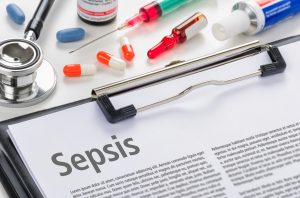When is a referral urgent?

Contact
Table of Contents
What is a referral and how is it arranged?
Patients are entitled to ask to be referred for specialist treatment on the NHS. However, whether the referral is made and whether that referral is treated as a priority depends on whether the GP thinks it is clinically necessary. Generally, a patient cannot generate a referral without a letter from a GP, save for matters treated by sexual health clinics or A&E departments.
A medical professional’s decisions on prioritising referrals as urgent or non-urgent are no doubt challenging. It is the responsibility of the doctor alone to decide the urgency of a patient’s needs which they will usually do via their own initial assessment, understanding of the patient’s history, examination, and NHS guidelines.
At the heart of the decision-making process is whether the patient’s health issue requires priority treatment. This includes considering whether the patient’s health is overall stable and whether waiting for an appointment is likely to cause the patient harm.
Urgent referrals
An urgent referral is that which clinicians consider being of sufficient seriousness to justify a rapid investigation. On occasion, a specialist is needed because the GP decides the symptoms need further investigation, the treatment explored so far has not been effective, and the investigations already arranged have shown unusual results. The urgent referral pathway is usually (but not always) reserved for suspicions of cancer but most urgent referrals do not end in a diagnosis of cancer. The referral is considered urgent because the specialist needs to arrange investigations quickly to try to establish what is wrong. An urgent referral means that the patient will be offered an appointment at a hospital within two weeks.
It is important when sending a referral letter that it is marked clearly as urgent or non-urgent. I recall one case involving a patient with very serious neurological injuries where the optometrist marked the form to the GP seeking that the patient be referred as non-urgent but recommended the patient be seen “asap” and the patient was therefore referred on a non-urgent basis. This is a perfect illustration of a referral recommendation lacking in clarity as to whether this was an urgent case.
If a patient has received an urgent referral, it is sensible to ensure that the doctor has the correct address and contact details for the patient. Particularly since the pandemic, some Trusts are communicating by email only. It is vitally important to ensure they have a current and correct email address for contacting the patient.
It is also important that the patient ensures they are available in the following two weeks to attend an appointment and that if they are not available, to make that clear to the doctor.
If English is not the patient’s first language, and a translator is required, the patient should let the hospital know and the hospital should arrange for a translator to attend the appointment.
The hospital should send notice of an appointment, usually by letter, within a few days but sometimes this is fixed by telephone.
If the appointment is made on an urgent basis, the patient will normally be seen by a specialist though tests may be required first to establish the cause of the symptoms.
Non-urgent referrals
It is often the case that a non-urgent referral is one that can be scheduled in advance as it does not involve a medical emergency. This is often described as “elective”. That is not to detract from the seriousness of a condition that could be causing daily discomfort and which the patient would like to be treated sooner than later – but ultimately the NHS has to prioritise.
If a patient is referred for non-urgent treatment with a specialist, guidelines published in January 2020, set the maximum waiting time at 18 weeks. This is known as the “18-week target”. This is the waiting time which starts once a hospital has received a referral from a GP or other community health professional.
COVID-19 and impact on urgent and non-urgent referrals
Whether the 18-week target is now aspirational and put on hold since the pandemic, there is not enough clear guidance or data to be able to comment. Certainly, at the outbreak of the COVID-19 pandemic, many of the NHS Trusts as part of their response to the pandemic, endorsed GPs no longer referring patients for routine hospital appointments and would only consider urgent referrals. Waiting lists were largely closed for outpatient appointments, diagnostic tests, and even for certain cancer services.
Non-urgent referrals and the associated treatment are far more likely to be subject to serious delays due to the hospitals’ priorities changing since the pandemic.
Urgent referrals and associated treatment remain available, primarily for cases of cancer, mental health and paediatric patients, even in the height of the pandemic, however, GPs have reported that large numbers of urgent referrals are being rejected.
The already challenging task of allocating referrals between urgent and non-urgent has no doubt become fraught with far more uncertainty since the pandemic as each NHS Trust has its own set of rules and protocols on the treatment of referrals. That is compounded by NHS Guidance swiftly changing its approach to referrals in response to the fluctuations of the pandemic.
For further advice from our London lawyers or to discuss any queries, you may have, please call us and ask for our specialist medical negligence solicitors.
Share this article
Related InsightsVIEW ALL
- 13.1.2023
Delayed diagnosis of appendiceal cancer
The medical negligence team at Osbornes Law has recently settled a case involving a patient who passed away following a...
Read more - 14.12.2022
Successful settlement for negligent care during kidney transplant...
Claimant v Royal Free London NHS Trust Osbornes have reached a settlement agreement on behalf of a Claimant who brought...
Read more - 9.11.2022
Breast cancer screening mammograms and negligence
Breast cancer screening has improved significantly in the UK due to research bettering the understanding of this terrible disease, which...
Read more - 28.9.2022
Women more likely to have symptoms ignored by...
An increasing number of women in the UK feel brushed off by GPs when presenting with real symptoms, with many...
Read more - 1.8.2022
Bereavement Following Treatment at Basildon Maternity Unit
Case Overview Stephanie Prior’s death by medical negligence claim relating to the death of Gabriela Pintilie has been settled...
Read more - 14.7.2022
Insulin overdose in hospitals due to limited staff...
A century ago, insulin was first used to treat a 14-year-old boy dying of type 1 diabetes. A hundred years later,...
Read more - 6.7.2022
GP Negligence claim leading to fatality successfully settled
Osbornes acted for a Claimant who brought proceedings on behalf of the estate of her late son, X, relating to...
Read more - 14.4.2022
Settlement for Failed Fibroid Surgery
Jodi Newton was instructed in a claim against London North West University Healthcare NHS Trust where our client suffered serious...
Read more - 23.3.2022
Nerve injury following bowel surgery
Stephanie Prior was instructed in a claim against Luton & Dunstable University Hospital where our client sustained an injury to...
Read more - 23.2.2022
Record high waiting lists put cancer patient lives...
In early January 2022 there were nearly six million people in England waiting for routine operations and treatment: a record high....
Read more - 31.1.2022
Recent fatal medical negligence cases
Osbornes Law specialises in helping families who have suffered a fatality due to inadequate medical care. Our specialist team is...
Read more - 31.1.2022
Melanoma misdiagnosis negligence claim
Client’s Case of Melanoma Misdiagnosis Jodi Newton is acting for a client with a melanoma on her foot, which...
Read more - 15.12.2021
Blood Clot Claims
Deep Vein Thrombosis, Pulmonary Embolism and Blood Clot Claims Blood clots – general risks Blood clots are not uncommon and there...
Read more - 18.11.2021
How do I obtain my GP medical records...
If you want to obtain copies of your medical records from your GP or the hospital where you have been...
Read more - 12.11.2021
Preventing lung cancer delayed diagnosis & misdiagnosis
The prevalence of lung cancer Lung cancer is one of the most common and serious cancers – sadly, it is often...
Read more - 3.10.2021
Sepsis – greater awareness can lead to better outcomes
In September, I attended the Brain Injury Group’s Sepsis training event in the City of London with my colleague,...
Read more - 13.7.2021
Substandard GP Care Results in Severe Vision Loss:...
Substandard GP Care Leads to Profound Vision Loss Stephanie Prior acted on behalf of J in connection with a claim...
Read more - 9.7.2021
Legal Support For Bereaved Families
What legal support is available for bereaved families? The loss of a loved one is an extremely distressing time for...
Read more - 8.7.2021
Failure to prescribe anti-coagulant medication proves fatal
Executor of the Estate of DS and another v James Paget University Hospitals NHS Foundation Trust The Clinical Negligence team...
Read more - 18.5.2021
Fatality of child caused by incorrect diagnosis
KRB was born in 2000 and was a patient at Whipp’s Cross Hospital. In the Autumn of 2014 he was feeling...
Read more - 13.10.2020
Parental Bereavement Leave & Pay
What is Parental Bereavement Leave and Pay? Parental Bereavement Leave and Pay is something that many parents will not be...
Read more - 2.9.2020
Cervical cancer misdiagnosis
Cervical Cancer Misdiagnosis Dating Back Four Years Jodi Newton, clinical negligence solicitor Osbornes Law, recently settled a claim for the...
Read more - 14.1.2020
Failure to diagnose a heart problem
Failure to diagnose a heart problem – education is the key Our hearts are the pumps that keep us alive by...
Read more - 13.11.2019
Fatal Claim against West London NHS Trust
Claim Against West London NHS Trust Case Overview I recently acted in a fatal medical negligence claim against West London...
Read more
























